Here are nine dry fruits that are perfect for enjoying during lazy evenings, along with their health benefits:
1. Almonds
Why Almonds Are Good for Your Health
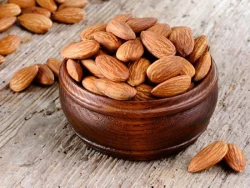
Benefits:
- Rich in Nutrients:
Almonds are high in antioxidants, vitamin E, protein, and fiber.
(Healthline) - Heart Health:
Regular consumption of almonds can lower LDL (bad cholesterol) levels and reduce the risk of heart disease.
(Medical News Today) - Weight Management:
Almonds’ high protein and fiber content can help with weight management by promoting satiety.
(EatingWell) - Brain Health:
Almonds contain riboflavin and L-carnitine, which support cognitive function.
(Verywell Health) - Skin and Hair Health:
The vitamin E and antioxidants in almonds promote healthy skin and hair.
(Verywell Health)
Serving Size:
- A typical serving size is 28 grams, which is about 23 almonds.
(Nutritionix)
Nutritional Highlights (per 28g serving):
- Calories: Approximately 164 kcal
(Nutritionix) - Protein: 6 grams
(Nutritionix) - Fiber: 4 grams
(Nutritionix) - Vitamin E: 35% of the Daily Value (DV)
(Healthline) - Magnesium: 20% of the DV
(Healthline)
Incorporating almonds into your diet can contribute to overall health, but it’s essential to consume them in moderation due to their calorie density.
2. Cashewnuts
Why Cashew Nuts Are Good for Your Health
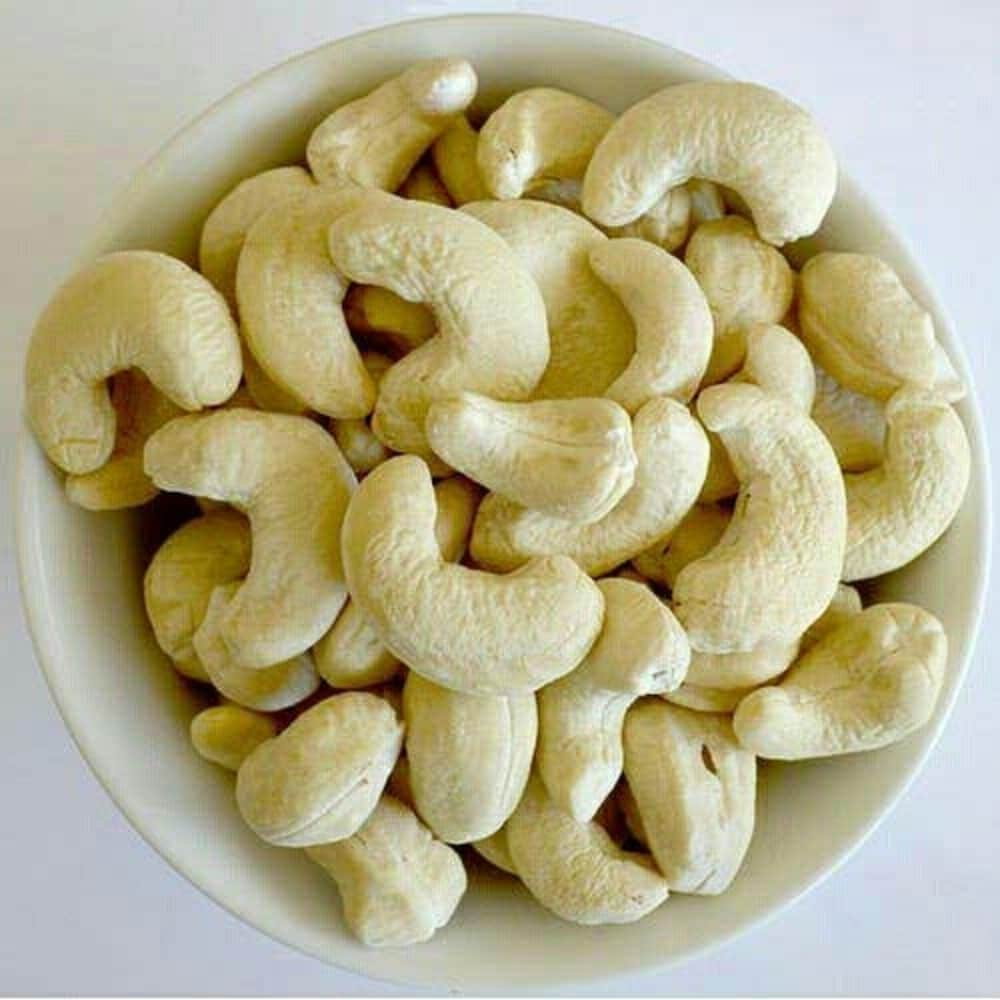
Benefits:
- Heart Health:
Cashews are rich in monounsaturated fats, which help reduce bad cholesterol (LDL) and improve heart health. They also provide magnesium and copper, which support overall cardiovascular function.
(Healthline) - Rich in Antioxidants:
Cashews contain antioxidants like vitamin E and selenium, which protect the body from oxidative stress, reduce inflammation, and may lower the risk of chronic diseases such as heart disease and cancer.
(PubMed) - Supports Bone Health:
Cashews are an excellent source of magnesium and calcium, both essential for maintaining strong bones and preventing bone-related disorders like osteoporosis.
(Medical News Today) - Promotes Healthy Weight Management:
Despite being calorie-dense, cashews can help with weight management. Their healthy fats, protein, and fiber content contribute to feelings of fullness and prevent overeating.
(Verywell Fit) - Supports Brain Function:
Cashews contain zinc, which is important for brain health and cognitive function. Zinc deficiency has been linked to memory and mood disorders, so including cashews in your diet can help maintain mental sharpness.
(PubMed) - Boosts Immunity:
Cashews are a good source of zinc, which plays a vital role in maintaining a strong immune system and fighting off infections.
(Harvard Health)
Serving Size:
- A typical serving size is about 1 ounce (28 grams), which is approximately 18 cashews.
(Nutritionix)
Nutritional Highlights (per 28g serving):
- Calories: Approximately 157 kcal
(Nutritionix) - Protein: 5 grams
(Nutritionix) - Fiber: 1 gram (4% of the Daily Value)
(Healthline) - Potassium: 5% of the Daily Value
(Verywell Fit) - Magnesium: 20% of the Daily Value
(Medical News Today)
Incorporating cashews into your diet can promote heart health, enhance brain function, support bone health, and boost immunity. They make a great snack on their own, or can be added to salads, stir-fries, or desserts!
3. Walnuts
Why Walnuts Are Good for Your Health
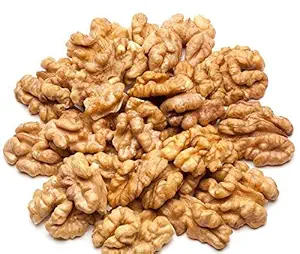
Benefits:
- Rich in Omega-3 Fatty Acids:
Walnuts are an excellent source of plant-based omega-3 fatty acids, which support heart health and reduce inflammation.
(Healthline) - Brain Health:
Rich in polyphenolic compounds and DHA, walnuts improve cognitive function and reduce the risk of neurodegenerative diseases.
(Medical News Today) - Heart Health:
Regular consumption of walnuts can lower LDL cholesterol, improve endothelial function, and reduce blood pressure.
(Harvard Health) - Gut Health:
Walnuts support the growth of beneficial gut bacteria, enhancing digestive health.
(Science Daily) - Cancer Prevention:
Antioxidants and anti-inflammatory compounds in walnuts may reduce the risk of certain cancers, such as breast and prostate cancer.
(PubMed)
- Serving Size:
- A typical serving size is 28 grams, which is about 14 walnut halves.
(Nutritionix)
- A typical serving size is 28 grams, which is about 14 walnut halves.
- Nutritional Highlights (per 28g serving):
- Calories: Approximately 185 kcal
(Nutritionix) - Protein: 4 grams
(Nutritionix) - Fiber: 2 grams
(Nutritionix) - Omega-3 Fatty Acids: 2.5 grams
(Healthline) - Magnesium: 11% of the Daily Value (DV)
(Harvard Health)
Incorporating walnuts into your diet can support heart, brain, and gut health, but they are calorie-dense, so moderation is key.
4. Pistachios
Why Pistachios Are Good for Your Health
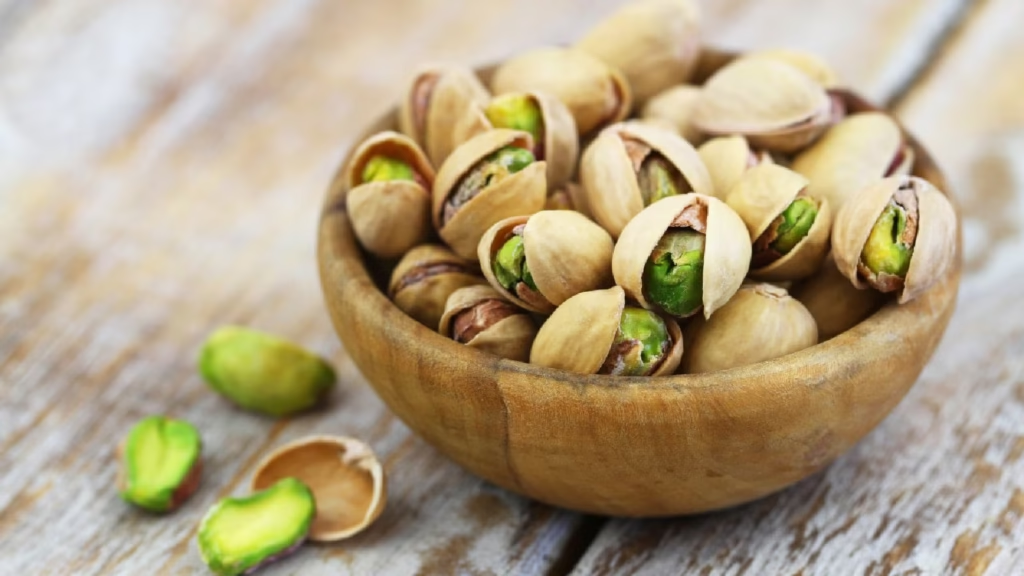
Benefits:
- Rich in Nutrients:
Pistachios are packed with vitamins, minerals, and antioxidants, including vitamin B6, potassium, and lutein.
(Healthline) - Heart Health:
Pistachios help lower LDL cholesterol and improve HDL cholesterol levels, promoting heart health.
(American Heart Association) - Weight Management:
Low in calories but high in protein and fiber, pistachios help curb hunger and support weight loss.
(Medical News Today) - Eye Health:
Contains lutein and zeaxanthin, antioxidants that protect against age-related macular degeneration (AMD).
(PubMed) - Blood Sugar Control:
Pistachios have a low glycemic index and help regulate blood sugar levels, making them great for diabetics.
(Diabetes Care Journal)
- Serving Size:
- A typical serving size is 28 grams, which is about 49 pistachios (unshelled).
(Nutritionix)
- A typical serving size is 28 grams, which is about 49 pistachios (unshelled).
- Nutritional Highlights (per 28g serving):
- Calories: Approximately 159 kcal
(Nutritionix) - Protein: 6 grams
(Nutritionix) - Fiber: 3 grams
(Nutritionix) - Vitamin B6: 28% of the Daily Value (DV)
(Healthline) - Potassium: 8% of the DV
(Healthline)
Adding pistachios to your diet can support heart health, aid in weight management, and enhance vision and blood sugar control. Enjoy them in moderation for optimal health benefits!
5. Dried Figs
Why Dried Figs Are Good for Your Health
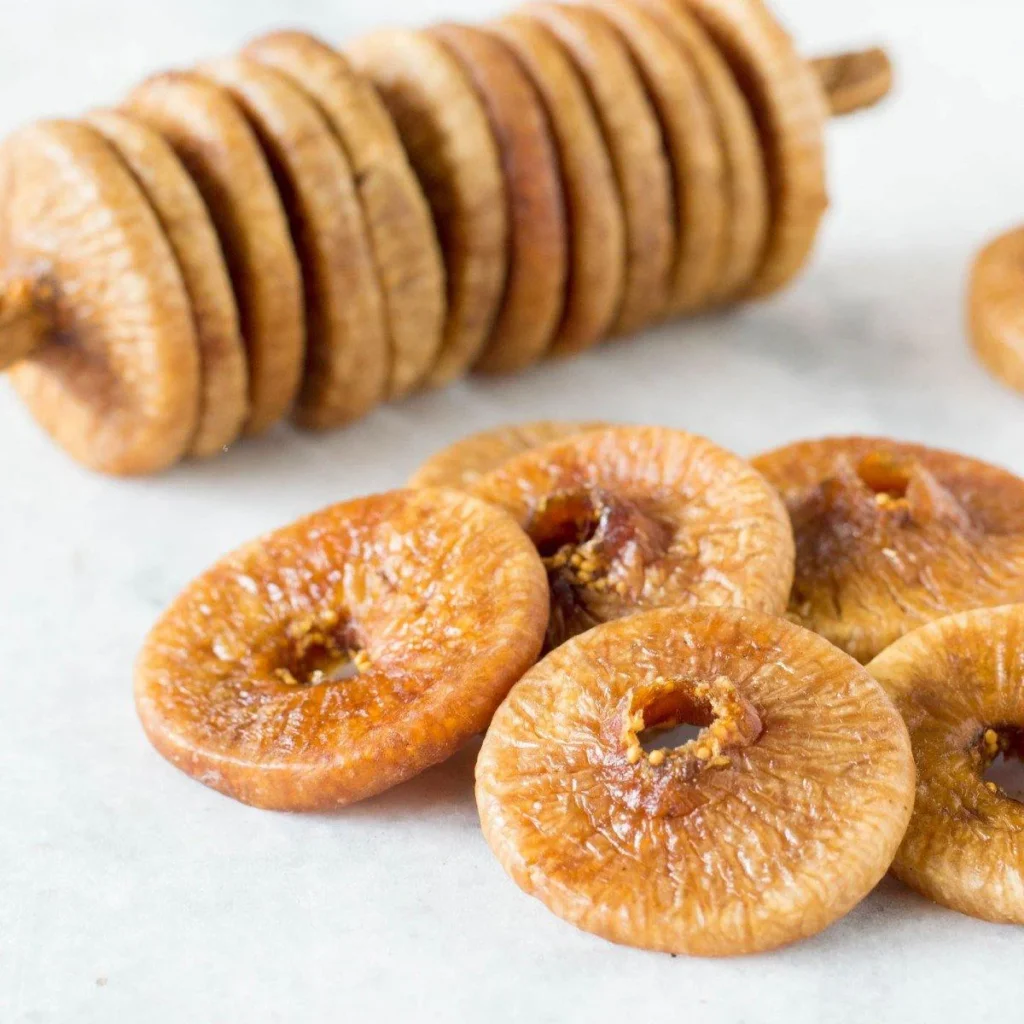
Benefits:
- Rich in Dietary Fiber:
Dried figs are an excellent source of fiber, aiding digestion, preventing constipation, and promoting gut health.
(Healthline) - Bone Health:
High in calcium, magnesium, and phosphorus, dried figs support bone density and strength.
(Medical News Today) - Rich in Antioxidants:
Packed with polyphenols and other antioxidants, dried figs protect against oxidative stress and reduce inflammation.
(PubMed) - Heart Health:
The potassium content in figs helps regulate blood pressure, while their antioxidants may reduce the risk of heart disease.
(Science Daily) - Natural Energy Booster:
Dried figs contain natural sugars like glucose and fructose, providing an energy boost and reducing fatigue.
(Verywell Fit)
- Serving Size:
- A typical serving size is about 40 grams (4-5 dried figs).
(Nutritionix) - Nutritional Highlights (per 40g serving):
- Calories: Approximately 100 kcal
(Nutritionix) - Protein: 1 gram
(Nutritionix) - Fiber: 4 grams (16% of the Daily Value)
(Healthline) - Calcium: 6% of the Daily Value
(Verywell Fit) - Potassium: 7% of the Daily Value
(Medical News Today)
Incorporating dried figs into your diet can support digestive health, strengthen bones, and improve heart function. Enjoy them as a healthy snack or add them to your meals!
6. Dates
Why Dates Are Good for Your Health

Benefits:
- Rich in Natural Sugars:
Dates are a great source of natural sugars like glucose, fructose, and sucrose, providing a quick energy boost.
(Healthline) - High in Fiber:
Dates promote healthy digestion, prevent constipation, and support gut health due to their high fiber content.
(Medical News Today) - Rich in Antioxidants:
Packed with flavonoids, carotenoids, and phenolic acid, dates help reduce inflammation and protect against chronic diseases.
(PubMed) - Heart Health:
Dates help regulate cholesterol levels and blood pressure due to their potassium and magnesium content.
(Harvard Health) - Bone Health:
Contain essential minerals like calcium, phosphorus, and magnesium, which support bone density and strength.
(Verywell Fit) - Natural Labor Aid:
Eating dates during pregnancy has been shown to promote cervical dilation and reduce the need for labor induction.
(PubMed)
- Serving Size:
- A typical serving size is about 40 grams (2-3 medium dates).
(Nutritionix) - Nutritional Highlights (per 40g serving):
- Calories: Approximately 120 kcal
(Nutritionix) - Protein: 1 gram
(Nutritionix) - Fiber: 3 grams (12% of the Daily Value)
(Healthline) - Potassium: 7% of the Daily Value
(Verywell Fit) - Magnesium: 6% of the Daily Value
(Medical News Today)
Incorporating dates into your diet can improve digestion, support heart and bone health, and provide a natural energy boost. They’re a versatile snack that can be enjoyed on their own or added to desserts and meals!
8. Apricots
Why Apricots Are Good for Your Health
Benefits:
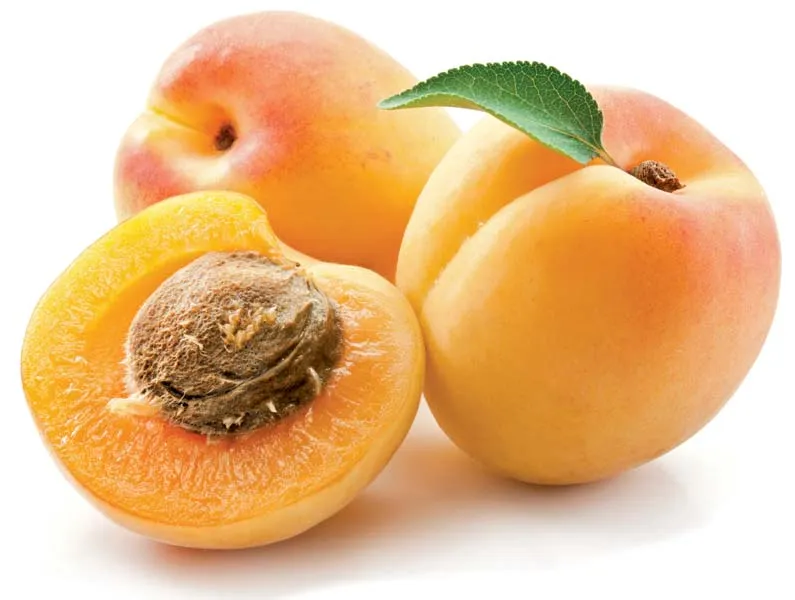
- Rich in Vitamins:
Apricots are an excellent source of vitamin A (in the form of beta-carotene), which is essential for eye health, immune function, and skin health.
(Healthline) - High in Fiber:
Apricots are a good source of dietary fiber, which promotes digestive health, helps prevent constipation, and supports gut microbiome balance.
(Medical News Today) - Rich in Antioxidants:
Packed with antioxidants like beta-carotene, lutein, and vitamin C, apricots protect the body against oxidative stress, inflammation, and chronic diseases.
(PubMed) - Heart Health:
Apricots contain potassium, which helps regulate blood pressure, and fiber, which aids in lowering cholesterol, both contributing to improved heart health.
(Harvard Health) - Skin Health:
The high vitamin A content in apricots supports healthy skin by promoting cell turnover and reducing the appearance of wrinkles and blemishes.
(Verywell Fit) - Boosts Immune System:
Apricots are rich in vitamin C, an essential nutrient for maintaining a strong immune system and combating infections.
(PubMed)
- Serving Size:
- A typical serving size is about 4-5 apricots (depending on their size).
(Nutritionix) - Nutritional Highlights (per 100g serving):
- Calories: Approximately 48 kcal
(Nutritionix) - Protein: 1 gram
(Nutritionix) - Fiber: 2 grams (8% of the Daily Value)
(Healthline) - Potassium: 9% of the Daily Value
(Verywell Fit) - Vitamin C: 10% of the Daily Value
(Medical News Today)
Incorporating apricots into your diet can support your immune system, promote healthy digestion, protect against oxidative stress, and improve skin health. Enjoy them as a snack, add them to salads, or use them in desserts and dishes!.
8. Hazelnuts
Why Hazelnuts Are Good for Your Health
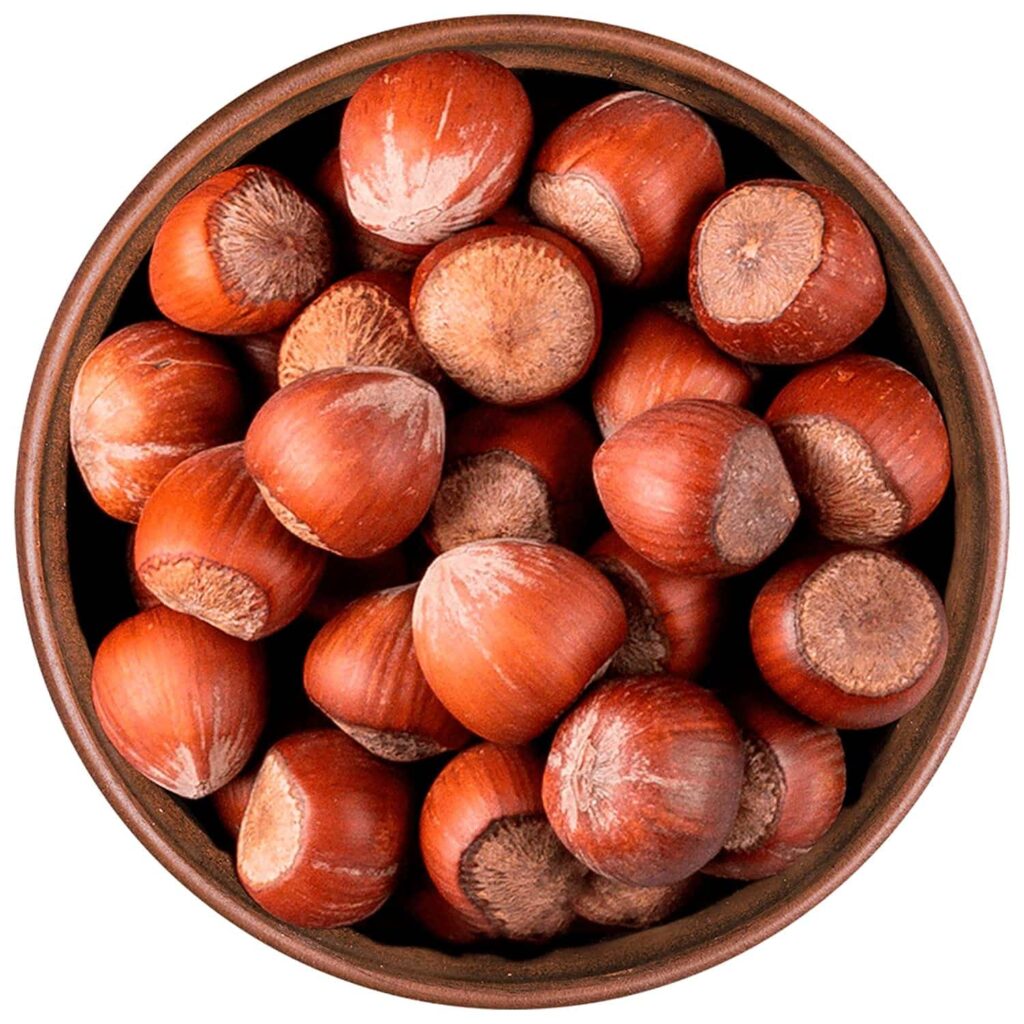
Benefits:
- Rich in Healthy Fats:
Hazelnuts are an excellent source of monounsaturated fats, which promote heart health by lowering bad cholesterol (LDL) levels and reducing the risk of heart disease.
(Healthline) - High in Antioxidants:
Hazelnuts are packed with antioxidants, including vitamin E and phenolic compounds, which protect cells from oxidative stress and reduce inflammation.
(PubMed) - Supports Brain Health:
The high content of vitamin E, thiamine, and healthy fats in hazelnuts contributes to cognitive function, helps prevent age-related cognitive decline, and supports overall brain health.
(Verywell Fit) - Rich in Protein and Fiber:
Hazelnuts provide plant-based protein and dietary fiber, which support muscle growth and repair and promote healthy digestion.
(Medical News Today) - Bone Health:
Hazelnuts are a good source of minerals like calcium, magnesium, and phosphorus, all of which are important for maintaining strong and healthy bones.
(Harvard Health) - Weight Management:
Due to their high fiber and healthy fat content, hazelnuts can help promote feelings of fullness and satiety, making them a beneficial addition to a weight management plan.
(PubMed)
- Serving Size:
- A typical serving size is about 28 grams (approximately 20 hazelnuts).
(Nutritionix)
- A typical serving size is about 28 grams (approximately 20 hazelnuts).
- Nutritional Highlights (per 28g serving):
- Calories: Approximately 176 kcal
(Nutritionix) - Protein: 4 grams
(Nutritionix) - Fiber: 3 grams (12% of the Daily Value)
(Healthline) - Potassium: 5% of the Daily Value
(Verywell Fit) - Magnesium: 8% of the Daily Value
(Medical News Today)
Incorporating hazelnuts into your diet can boost heart health, protect against oxidative damage, enhance brain function, and support digestion. Enjoy them as a snack, sprinkle them over salads, or use them in baking and desserts!
9. Dried Cherries
Why Dried Cherries Are Good for Your Health
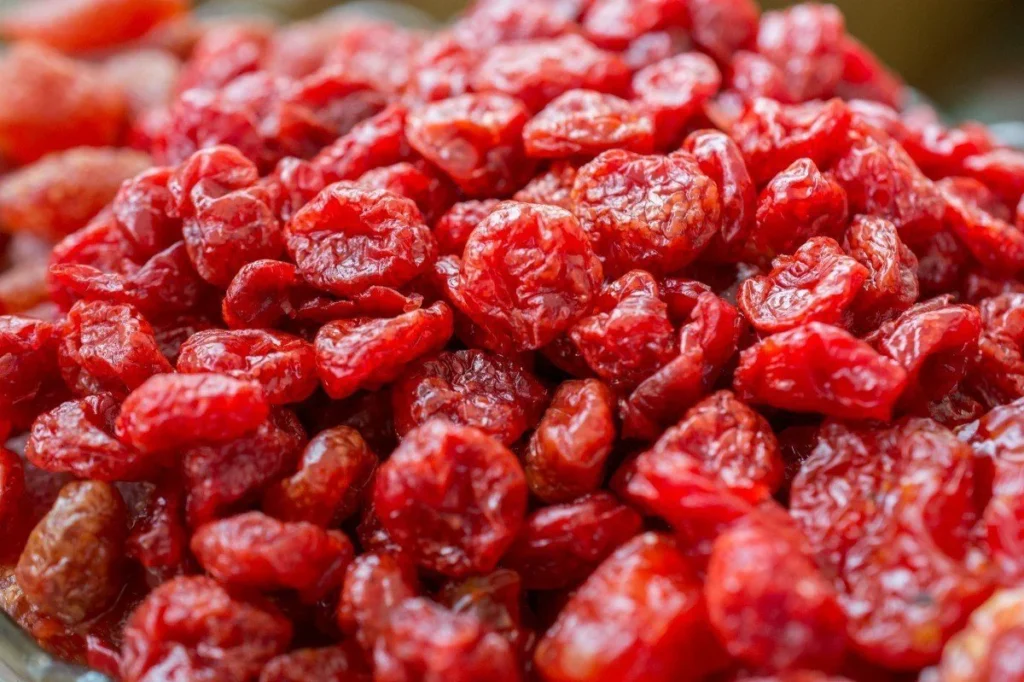
Benefits:
- Rich in Antioxidants:
Dried cherries are packed with antioxidants, especially anthocyanins, which help reduce inflammation, protect against oxidative stress, and may reduce the risk of chronic diseases like heart disease and diabetes.
(Healthline) - Supports Heart Health:
The high content of antioxidants, along with potassium and fiber, in dried cherries can help improve heart health by lowering blood pressure, reducing cholesterol levels, and promoting overall cardiovascular function.
(PubMed) - Improves Sleep Quality:
Dried cherries are a natural source of melatonin, a hormone that regulates sleep. Consuming dried cherries or cherry juice may help improve sleep quality, especially in individuals with insomnia or sleep disturbances.
(Medical News Today) - Anti-Inflammatory Effects:
Dried cherries contain compounds that have been shown to reduce markers of inflammation, which may benefit individuals with conditions like arthritis, gout, or muscle soreness.
(PubMed) - Boosts Immune Function:
Rich in vitamin C and other antioxidants, dried cherries help strengthen the immune system, protect against infections, and promote overall health.
(Verywell Fit) - Promotes Healthy Skin:
The antioxidants in dried cherries help protect the skin from damage caused by free radicals, supporting a healthy, youthful complexion and reducing the appearance of aging signs.
(PubMed)
- Serving Size:
- A typical serving size is about 1/4 cup (approximately 30 grams).
(Nutritionix)
- A typical serving size is about 1/4 cup (approximately 30 grams).
- Nutritional Highlights (per 30g serving):
- Calories: Approximately 120 kcal
(Nutritionix) - Protein: 1 gram
(Nutritionix) - Fiber: 2 grams (8% of the Daily Value)
(Healthline) - Potassium: 5% of the Daily Value
(Verywell Fit) - Vitamin C: 10% of the Daily Value
(Medical News Today)
Incorporating dried cherries into your diet can help protect against inflammation, support heart health, improve sleep, and boost your immune system. They make a great snack on their own or can be added to salads, baked goods, and yogurt!
10. Prunes
Why Prunes Are Good for Your Health

Benefits:
- Promotes Digestive Health:
Prunes are well-known for their ability to relieve constipation. They are high in fiber, particularly soluble fiber, and contain sorbitol, a natural laxative that helps improve bowel movements.
(Healthline) - Rich in Antioxidants:
Prunes are loaded with antioxidants, including phenolic compounds, which help protect the body from oxidative stress and reduce inflammation, lowering the risk of chronic diseases like heart disease and diabetes.
(PubMed) - Supports Bone Health:
Prunes are an excellent source of vitamin K and minerals like calcium and potassium, which are essential for maintaining healthy bones, improving bone density, and preventing bone loss.
(Medical News Today) - Helps Lower Cholesterol Levels:
The soluble fiber in prunes can help lower bad cholesterol (LDL) levels, improving heart health and reducing the risk of cardiovascular diseases.
(Verywell Fit) - Improves Skin Health:
The antioxidants, vitamins, and minerals in prunes help protect the skin from aging, promote hydration, and enhance the appearance of the skin by reducing wrinkles and fine lines.
(Harvard Health) - Regulates Blood Sugar Levels:
Prunes have a low glycemic index, which means they do not cause sharp spikes in blood sugar levels. This makes them a great option for individuals with diabetes or those looking to regulate their blood sugar.
(PubMed)
- Serving Size:
- A typical serving size is about 4-5 prunes (about 40 grams).
(Nutritionix)
- A typical serving size is about 4-5 prunes (about 40 grams).
- Nutritional Highlights (per 40g serving):
- Calories: Approximately 100 kcal
(Nutritionix) - Protein: 1 gram
(Nutritionix) - Fiber: 4 grams (16% of the Daily Value)
(Healthline) - Potassium: 6% of the Daily Value
(Verywell Fit) - Vitamin K: 18% of the Daily Value
(Medical News Today)
Incorporating prunes into your diet can improve digestion, support bone health, reduce inflammation, and enhance skin health. They are a delicious and nutritious snack or can be added to smoothies, cereals, and baked goods.
How to Use Dried Fruits and Nuts in Your Evening Snacks
Enjoy the goodness of dried fruits and nuts by incorporating them into delicious, nutrient-dense evening snacks. Here are some creative ways to combine these ingredients:
- Mix into Yogurt or Oatmeal
Add a handful of dried fruits like apricots, prunes, or cherries into your yogurt or oatmeal. This will not only enhance the flavor but also provide an extra boost of fiber and antioxidants to support digestion and overall health. - Create a Homemade Trail Mix
Combine dried fruits like raisins, cherries, or hazelnuts with nuts (such as almonds, cashews, or walnuts) and seeds (like sunflower or pumpkin seeds) to make a homemade trail mix. This balanced snack provides healthy fats, protein, and fiber to keep you full and satisfied. - Pair with Dark Chocolate
For a sweet treat, pair dried cherries, apricots, or prunes with pieces of dark chocolate. The combination of antioxidants from both the fruit and the chocolate makes this a satisfying and heart-healthy option. - Add to Smoothies
Blend dried fruits with fresh fruits, greens, and protein-rich ingredients like Greek yogurt or a plant-based protein powder. This smoothie will give you a naturally sweet, fiber-filled, and energy-boosting snack. - Make a Fruit Salad
Combine dried fruits with fresh fruits like berries, citrus, and apples for a refreshing, hydrating fruit salad. You can add a sprinkle of cinnamon or a drizzle of honey for added flavor. - Stuff Dates with Nut Butter
For a protein-packed, satisfying snack, stuff pitted dates with your choice of almond, peanut, or cashew butter. You can sprinkle some chia seeds or sea salt on top for extra texture and flavor. - Incorporate into Baked Goods
Add dried fruits like cherries, apricots, or raisins into homemade muffins, cookies, or granola bars. These dried fruits provide natural sweetness, and the addition of nuts or seeds enhances the flavor and texture. - Dried Fruit and Cheese Pairing
Create a savory-sweet pairing by adding dried fruits like apricots or figs to cheese platters. Go for creamy goat cheese or sharp cheddar for a balanced, satisfying snack that combines protein, healthy fats, and a touch of sweetness.
These simple and creative ideas allow you to enjoy the health benefits of dried fruits and nuts in a variety of flavorful ways. Mix and match ingredients to suit your taste and dietary preferences for an evening snack that’s both nourishing and delicious.
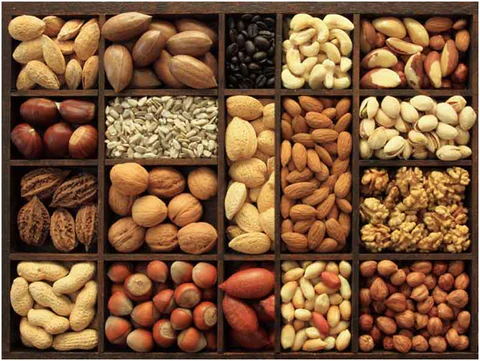
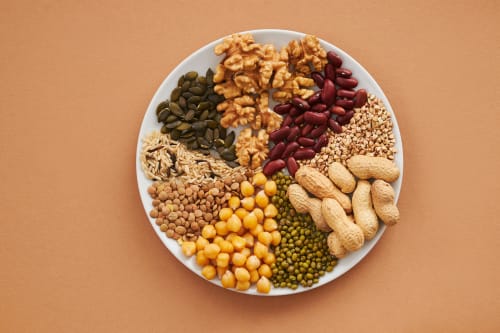






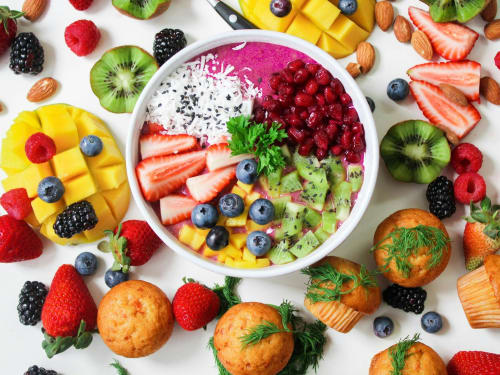


Leave a Reply